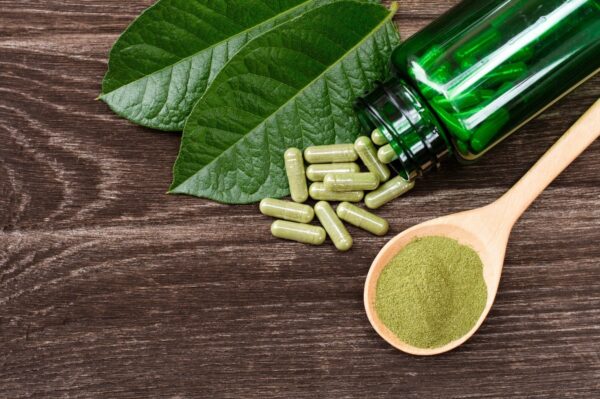In recent years, there has been increasing interest in substances often referred to as “legal highs.” These substances, which are legal or not explicitly controlled in some regions, offer psychoactive effects similar to traditional illicit drugs. Among the most discussed are Delta-8 THC, Tianeptine, Kratom, and Phenibut. Each of these substances has a unique profile in terms of legality, usage, and effects. Genesis Reference Laboratories provides a general overview of these four substances, exploring what they are, their legal status, how they are used, and their potential effects.
Delta-8 THC: The Milder Sibling of Delta-9 THC
- What is Delta-8 THC?
Delta-8 THC is a cannabinoid found in cannabis plants, but in much smaller quantities compared to its more famous counterpart, Delta-9 THC, the primary psychoactive compound in marijuana. Chemically, Delta-8 THC is almost identical to Delta-9, with the main difference being the location of a double bond in their chemical structures. This slight variation makes Delta-8 THC less potent, often resulting in a milder psychoactive experience.
- Legal Status
The legal status of Delta-8 THC is somewhat ambiguous. In the United States, it became popular due to a loophole in the 2018 Farm Bill, which legalized hemp and its derivatives. Since Delta-8 THC can be derived from hemp, it is technically legal under federal law. However, some states have moved to ban or regulate it due to concerns over its psychoactive effects and lack of regulation.
- Usage and Effects
Delta-8 THC is typically consumed in the form of edibles, tinctures, or vape cartridges. Users report that it provides a smoother, less anxious high compared to Delta-9 THC, making it appealing to those who want a more controlled experience. The reported effects include euphoria, relaxation, and pain relief, but they are generally milder and shorter-lasting than those of Delta-9 THC.
Tianeptine: The Antidepressant with Opioid-Like Effects
- What is Tianeptine?
Tianeptine is a pharmaceutical drug developed in the 1960s, primarily used as an antidepressant in several countries. It is unique among antidepressants because it acts as a selective serotonin reuptake enhancer (SSRE), rather than a reuptake inhibitor. Interestingly, at higher doses, Tianeptine also binds to opioid receptors, leading to opioid-like effects, which has contributed to its misuse as a recreational drug.
- Legal Status
Tianeptine is not approved by the FDA for any use in the United States, but it remains available in some countries as a prescription medication. In the U.S., it is often sold online as a dietary supplement, though several states have moved to ban or restrict its sale due to concerns over abuse and addiction.
- Usage and Effects
Tianeptine is typically consumed in pill or powder form. In therapeutic doses, it is used to treat depression and anxiety. However, when taken in higher doses, users report euphoria, sedation, and even opioid-like withdrawal symptoms upon cessation. This potential for abuse has raised significant concerns, leading to increasing regulatory scrutiny.
Kratom: The Herbal Supplement with a Dual Personality
- What is Kratom?
Kratom is a tropical tree native to Southeast Asia, where its leaves have been used for centuries as a traditional medicine. The leaves contain compounds that interact with opioid receptors, leading to both stimulant and sedative effects depending on the dosage. It is often marketed as a natural remedy for pain, anxiety, and opioid withdrawal.
- Legal Status
Kratom’s legal status varies widely across the globe. In the United States, it is legal at the federal level but banned in several states and municipalities. The FDA has expressed concerns about its safety, and there have been efforts to classify it as a controlled substance, though these have so far been unsuccessful.
- Usage and Effects
Kratom is typically consumed in the form of powder, capsules, or brewed as a tea. At low doses, it acts as a stimulant, increasing energy and focus. At higher doses, it has sedative and pain-relieving effects similar to opioids. However, its safety profile is controversial, with some users reporting dependency, withdrawal symptoms, and adverse effects such as nausea, constipation, and liver toxicity.
Phenibut: The Anti-Anxiety Substance with a Risk of Dependency
- What is Phenibut?
Phenibut is a synthetic compound developed in the Soviet Union in the 1960s, primarily used to treat anxiety, insomnia, and PTSD. It mimics the neurotransmitter GABA, producing calming effects. It is often classified as a nootropic or “smart drug” due to its purported cognitive-enhancing properties.
- Legal Status
Phenibut is not approved for medical use in the United States or many other countries, but it is sold as a dietary supplement or nootropic online. Despite its availability, it is not without risks, leading some countries to restrict its sale due to concerns over abuse and dependency.
- Usage and Effects
Phenibut is usually taken in powder or capsule form. Users report that it reduces anxiety, enhances mood, and improves social interaction. However, its effects are dose-dependent, and tolerance can build quickly, leading to the need for higher doses to achieve the same effects. Dependency and withdrawal symptoms, including anxiety, insomnia, and even psychosis, have been reported with regular use.
Navigating the Risks of Legal Highs
Delta-8 THC, Tianeptine, Kratom, and Phenibut each offer unique effects that have attracted users seeking alternatives to traditional drugs. However, their legal status, potential for abuse, and health risks should not be overlooked. While these substances are accessible and often marketed as safe, they carry significant risks that can lead to dependency, legal issues, and adverse health effects. As with any substance, it is crucial to approach them with caution, be aware of the legal implications, and consider the potential impact on physical and mental health.
Understanding these legal highs is essential for making informed decisions, whether you are considering using them for their therapeutic benefits or out of curiosity. Always consult with a healthcare professional before trying any new substance, especially those with psychoactive effects.
